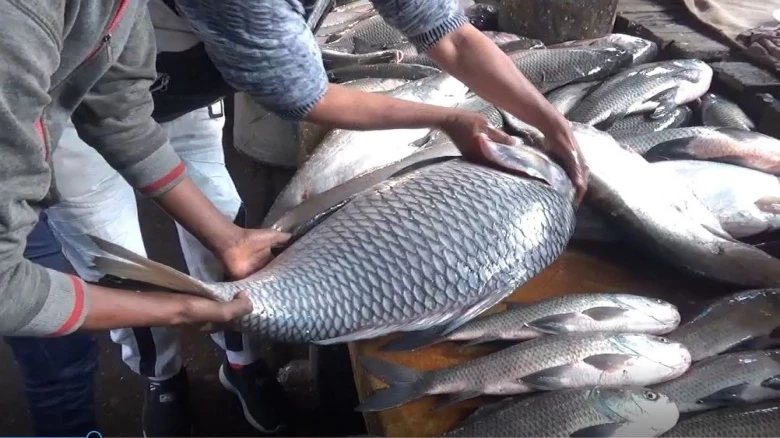Since fish is the highlight of the festival, Uzan Bazar Ghat Fish Market transforms into a carnival-like scene...
Digital Desk: People in Assam are gearing up to celebrate Uruka, a festival marked by feasting and merry-making, the day before Magh Bihu.
Since fish is the highlight of the festival, Guwahati's Uzan Bazar Ghat Fish Market transforms into a carnival-like scene. In addition to the fish caught locally, some 2,000 metric tons (MT) of fish are imported from other regions of India.
The GMC's Wholesale Fish Market in Betkuchi is prepared to meet demand on Uruka Day, according to Kajal Paul Choudhury, secretary of the Brihattar Guwahati Paikary Mas Becha – Kina Somobai Samiti Ltd. (BGPAMKSSL). Trucks carrying imported fish from Andhra Pradesh and West Bengal as well as trains from Delhi, Lucknow, Kanpur, Madhya Pradesh, and other locations arrive in the state.
Approximately 4-6 trucks transport 48–72 MT of fish from other states to Guwahati each day. However, the wholesale fish markets in Uruka have reserved 50–60 trucks (600–720 MT) of fish from out of state. According to Choudhury, on Uruka Day, 1,800–2,000 MT of imported fish including well-known species like rohu, catla, chital, grass carp, hilsa, and others—will arrive in the state.
Assam's fish production has been rising over time, with the State Fishery Department stating that it reached 4.43 lakh MT in 2022–2023. Increased fish farming practices, an increase in the number of people working in the fishing industry, the expansion of fish farming regions, and the state's supply of high-quality fish seeds are all blamed for this growth.
In simpler terms, Assamese people are excitedly getting ready for the Uruka feast, where fish plays a major role in the festivities.
To meet the high demand on Uruka Day, the state is importing 2,000 MT of fish, or a large amount, from various places. Increased participation in fish farming, increased acreage under cultivation, and higher-quality fish seed are all linked with the rise in fish production in Assam.

Leave A Comment